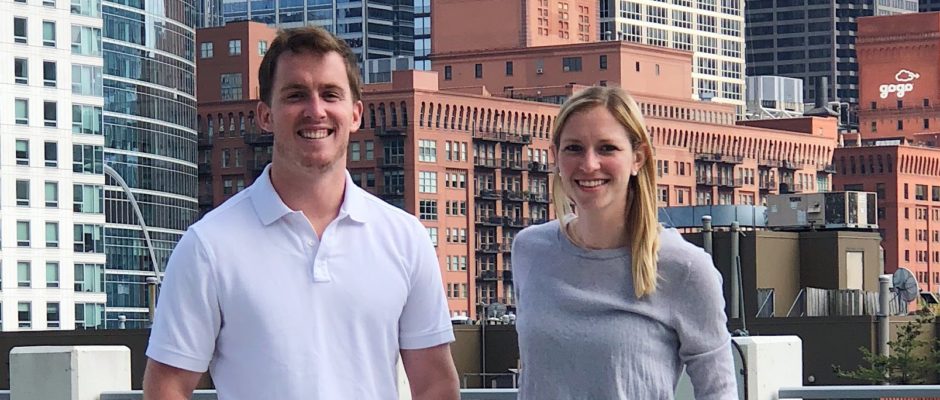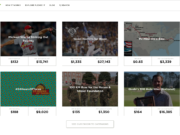When Colin Keeler was applying to business school in 2016, he paid a high-priced admissions consultant a hefty hourly fee to provide in-depth guidance. It worked: He is now a second-year student at The Wharton School, the University of Pennsylvania’s acclaimed program.
When his friend Cara Morphew applied to MBA programs the next year, she relied on Colin for advice. (She landed in the one-year accelerated MBA program at the Kellogg School of Management at Northwestern University.)
Their disparate experiences as applicants inspired BeenThere, the pair’s Philadelphia-based startup that connects current business school students with aspirants.
“While Cara was lucky enough to have a close connection who recently went through this process, many applicants lack the relationships or monetary support to utilize these resources,” says Keeler. “By using current students [as mentors], BeenThere provides viewpoints closest to the current environment of each program and the resources they provide. [The] mentors offer highly relevant, up-to-date application advice and feedback.”
BeenThere currently has 150 mentors at 22 MBA programs; they provide services including brainstorming, school selection, personal brand development, resume review, essay preparation and review, recommendation guidance, and mock interviews. The startup takes a commission from the mentors, whose rates vary, with most between $75 – $125/hr (versus the $300 – $500 that admissions consultants typically charge). BeenThere also offers fixed-price, school-by-school packages that allow for unlimited mentorship, primarily for applicants who are laser-focused on a few schools and want start-to-finish help.
Talking to students is the best way to cut through hype and marketing to get to the core of it.Colin Keeler, BeenThere
“All too often, applicants look just at the latest rankings and determine their list,” explains Keeler. “It’s understandable – everyone wants to go to the ‘best’ school they can. But ‘best’ is so dependent on what you want to do. If your goal is in a specific industry or geography, different schools will be better suited than others.”
“Moreover, understanding the experience you want in school shapes things dramatically,” he adds. “Schools often talk about themselves using very similar language, so without digging in, applicants often struggle to really understand the nuances of culture, classroom and extracurricular environment at each. Size, urban vs. suburban, academic strengths, airport accessibility – all these factors have meaningful impacts on your experience.”
One goal for BeenThere is to de-mystify this world for a wide range of candidates. The rigorous application process can be particularly intimidating for non-traditional students, and the startup hopes that by lowering barriers, they can increase the competitiveness of such applicants and drive greater diversity in the classroom.
Looking ahead, the company is launching a new tool aimed at further leveraging students’ insights to provide a view of MBA programs that cuts through marketing and stereotypes. And the team is also exploring an expansion into law and medical school applications and career guidance.
“Ultimately, choosing the right school and applying to that school requires the same thing: a deep understanding of one’s self and a tangible, specific direction that they want to take their career,” says Keeler. “Talking to students is the best way to cut through hype and marketing to get to the core of it.”
ELISE VIDER is news editor of Keystone Edge.



